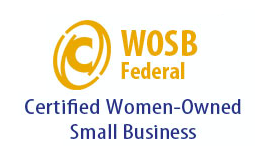
Michael Simonds, CEO* of UNUM wrote recently about women's advancement and closing the leadership gender gap. The whole article is worth a read and especially his awareness of the impact of gender dynamics (gender bias, stereotypes, assumptions) on women's advancement.
Gender Dynamics are the reason that even when organizations identify hidden gender bias in talent management systems and remove it, there are still barriers to women's advancement. Here are 3 examples:
Motherhood Penalty/Fatherhood Reward
When we address this gender dynamic our goal is to get managers thinking about assumptions that might be at play when they make talent decisions. About this gender dynamic, Michael writes:
"In addition, I try to actively encourage my top executives to challenge assumptions when they’re thinking about filling a senior position. In considering a woman for a new and expanded job, they may be tempted to dismiss her as a potential candidate if relocation is required, particularly if she has children and a husband who has a successful career. This kind of assumption is a barrier to providing opportunities to deserving female executives, and candid conversations about those assumptions can be a powerful force in shifting corporate culture."
Prevailing Leadership Paradigm
Often men expect "leadership" to look like command & control behavior. This is a style that is least commonly used by women who research finds prefer a more inclusive approach. Here's what Michael has to say about this.
"It’s also essential for us to understand that women can generate powerful results without mirroring male expectations and male style. Men should have confidence when they assign a talented woman a tough or complex assignment, even if she doesn’t approach the work or drive results in the same way as her male counterpart. As male leaders, this may feel uncomfortable at times, but the best leaders recognize the immense and inherent value of varying perspectives, strengths and temperaments."
Meritocracy or "Bragitocracy"?
Companies like to think they are strict meritocracies, but often they are more like bragitocracies where those who self-promote are in turn promoted. Michael understands this and writes,
"...it’s important for male executives to recognize that men are often much more assertive about promoting themselves and pushing hard for the next job. Women are typically less vocal. Leaders need to understand that, and make sure we specifically ask talented women executives what their goals and aspirations are, and help them navigate a path to get there. You may have to draw it out of them sometimes, but that process is essential to building the depth of leadership in any company."
You will get a taste of our work on this dynamic (and all of the 10 we educate about) when you...
*CEO of UNUM from 2013-2020







